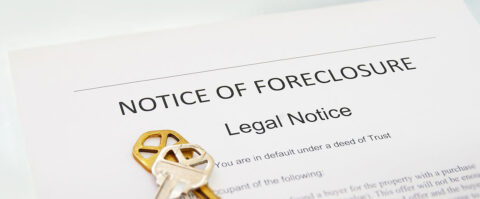NEW JERSEY REQUIRES THAT DEFERRAL AND FORBEARANCE AGREEMENTS BE LISTED IN FORECLOSURE COMPLAINTS
During Covid, many lenders offered Forbearance, or Deferral agreements, to temporarily pause or reduce loan payments. At the end of the Forbearance or Deferral Agreement, arrangements must be made to begin monthly payments. If a new arrangement cannot be reached, the lender will file a Foreclosure Complaint.
Some lenders are not including the Forbearance or Deferral Agreements in the Complaints, and this violates New Jersey Court Rules. If this occurs, the Foreclosure Complaint should be amended and re-served on the homeowners.
In response to a lender’s Motion for Final Judgment, this office raised the issue and the Court denied the application for Final Judgment and stated:
Plaintiff’s application fails to satisfy key elements required by R. 4:64-2(a)-(d).
Without copies of the hardship forbearance plan/deferral agreement documents, neither the Defendant, the Office of Foreclosure, nor this Court can determine what terms were in effect (when, and for how long), the amount(s) of default, the interest rate, and the due date. R. 4:64-2(b) specifies the required contents of the “affidavit of amount due,” including evidence of “indebtedness” (generally defined in the mortgage documents as all principal, interest, and other amounts, costs and expenses payable under the note or related documents, together with all renewals of, extensions of, modifications of, consolidation of, and substitutions for the note or related documents, and any amounts expended or advance by the lender). Deutsche Bank National Mortgage v. Orta, F-008966-22
Forbearance/Deferral Agreements
A forbearance (or deferral) agreement is an arrangement between a borrower and a lender where the lender agrees to temporarily reduce or suspend the borrower’s payments for a specified period. This is not a loan forgiveness, and the borrower will eventually have to repay the missed or reduced payments, either in a lump sum or by adding it to the remaining loan balance.
This kind of agreement is often sought by borrowers facing temporary financial hardships, such as job loss or medical emergencies. It can provide short-term relief, allowing the borrower time to recover financially without immediately facing foreclosure or default penalties.
After the forbearance period ends, the borrower must resume the regular payments and address the missed or reduced payments as per the terms of the agreement.
The court requires a complete and accurate account of the borrower’s obligations and any modifications to them. Lenders who disregard this requirement must rectify their errors by amending the Foreclosure Complaint to reflect all agreements that impact the amount due.
At the law offices of Ira J. Metrick, we have experience in defending New Jersey homeowners in all manner of mortgage issues. Contact us today if you are facing any difficulties with a foreclosure after a Deferral or Forbearance Agreement.



